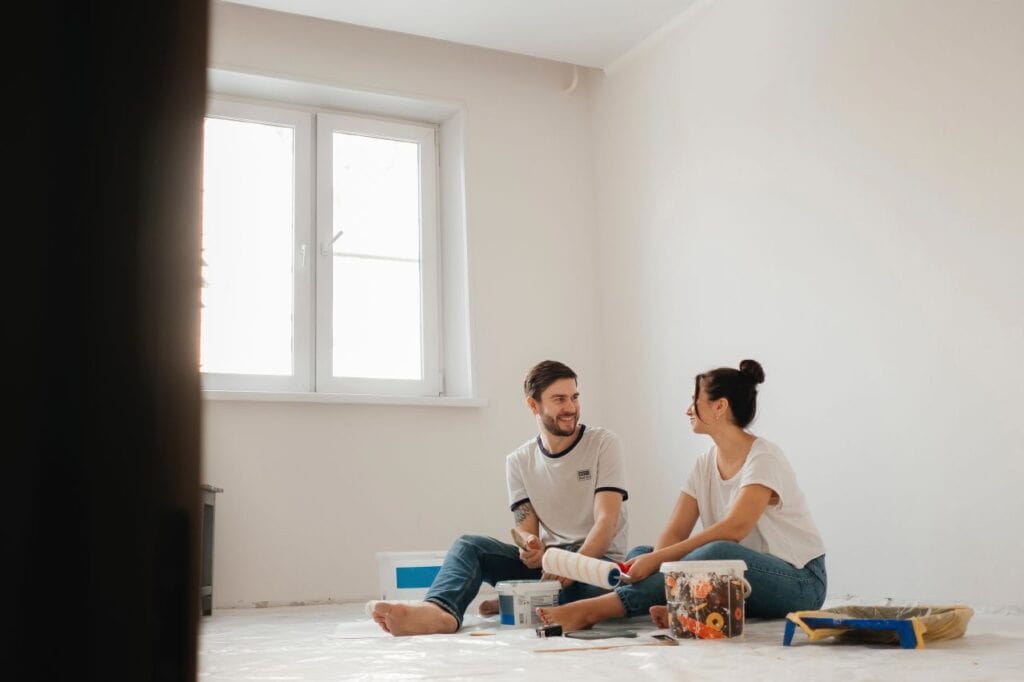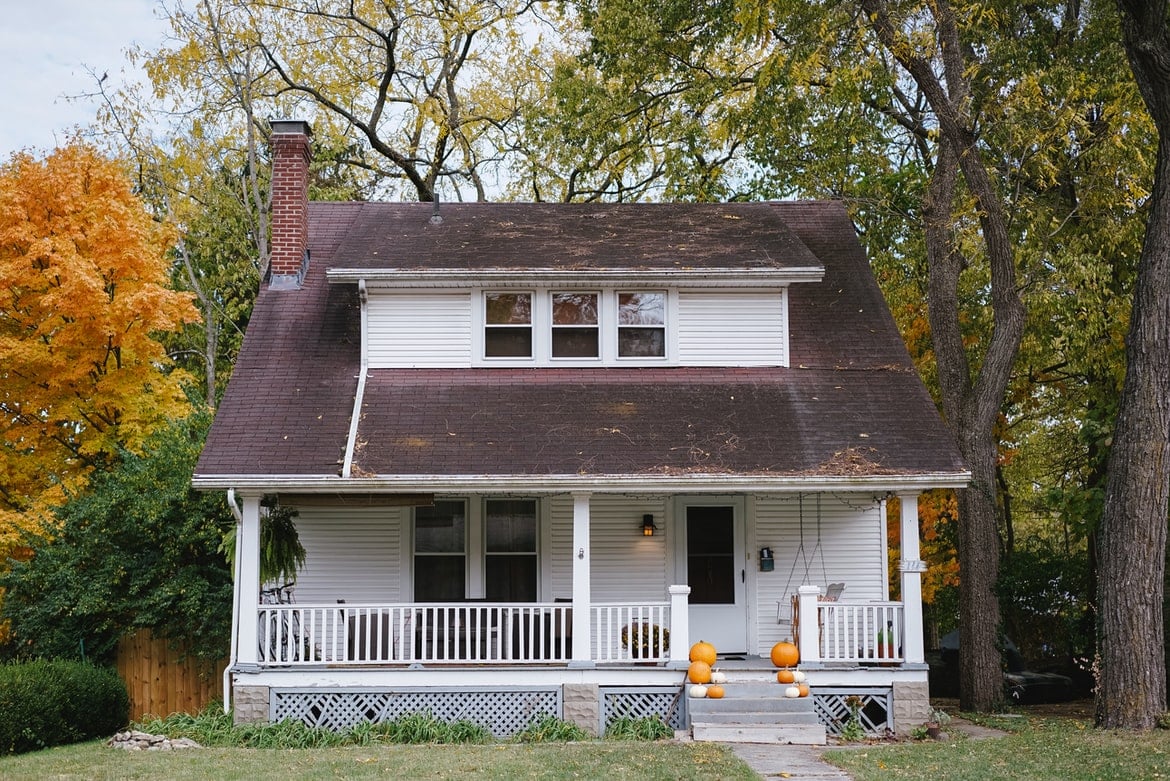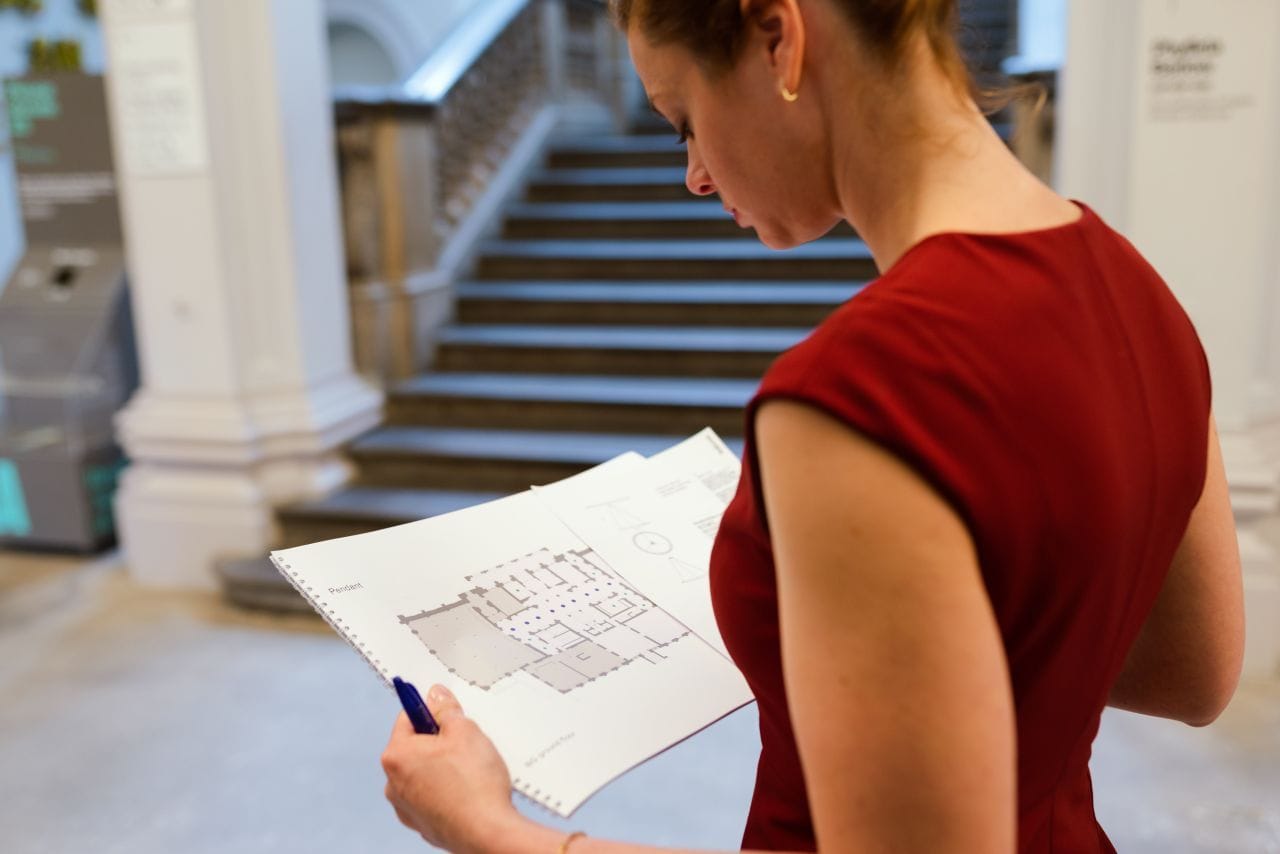Many prospective buyers of real estate are torn between purchasing an already-existing house and starting from scratch to construct their ideal dwelling. Both have their advantages and disadvantages, so choosing one will depend on factors such as your priorities, available resources, and available time. A well-established residence will have been lived in for some time and may have had several different owners. When you buy or build a brand-new house, you get the honour of being the first resident. When deciding between buying and building an office, many startups weigh the costs and benefits of both options. Several considerations, such as the company's existing and future expansion objectives and the health of the commercial real estate, construction, and leasing markets, should be taken into account during this process. Whether or not the corporation has any interest in investing in real estate as a sideline and how much cash it has on hand are also crucial considerations.
Appraisal fees, down payments, loan origination fees, closing costs, and build-out expenses are all typical building purchase costs. These are just a few of the many costs associated with new construction, which also includes the price of land, architectural services, building permits, and building inspections. In addition to the price of materials and labour, there will also be the expense of acquiring property and, in some situations, installing infrastructure like roads and water and power lines. There could be a significant lull in business activity throughout the time it takes to go from the groundbreaking ceremony to the moment when you can move in and begin running your company as usual.
Whether or not it makes financial sense to buy a building versus construct one typically depends on the specifications of the space you'll be occupying. Take our hypothetical accounting firm, for instance, which is in need of some elementary office space. For a fraction of the cost of starting from scratch, you can find a newly constructed or already occupied office building that is suitable for your needs. However, if your company is very intricate, or if you require highly specialised facilities, it may be more cost-effective to construct a brand-new facility rather than attempt to modify an existing one.
You're smart to develop a bigger facility than you'll need right now; that provides you flexibility. You may defray some of the price of the initial investment by renting out some of the space to other businesses, and you'll still have the option of moving in yourself when your business needs more room. The value of real estate can rise or fall with the market, so if you buy a building with an eye towards selling it in the future, you might make a profit.
If your business's investment in a new facility will result in a large number of new jobs, you may be eligible for tax cuts from either the local or state government. Before making a final decision, it's a good idea to contact your state's economic development agency to find out if any tax advantages are available.
The Average Cost To Build Your Own House
The only reliable way to estimate how much it will cost to construct a bespoke home is to commision a set of blueprints and provide detailed specifications for the structure's construction. Gassett suggested selecting house layouts and requesting estimates from multiple local builders and architects. You can get a better idea by averaging their offers. Where there was once no dwelling, the cost of the land makes up the bulk of the difference between building and purchasing a home. While the cost of an existing home already includes the value of the land on which it sits, the cost of a newly constructed home is higher since the land must be purchased first. A lot of planning and thought must go into building the house of your dreams.
- The purchase: Land value is reflected in the cost of an already built home, but new construction is a different story. Financing your new home can be done in a few different ways. One option is to utilise a construction loan to pay for the land, labour, and supplies, and then refinance into a more standard mortgage. A lender may be hesitant to provide financing for land that lacks essential infrastructure like water and electricity since it would be more difficult for the lender to recoup their losses in the event of a default.
- Excavation: If you could describe the quality of your land, how would you describe it? Is there rock down there, or is it just grass? Is there a way for floodwaters to drain? How solid is your base? These are problems that are addressed in the preliminary planning phase, which can run several thousand dollars if extensive work is required to prepare the property for construction. Request from your real estate agent for a 30-day examination period to make sure there are no surprises. To get the answers to these questions, cost estimates, and an expert opinion on whether or not the land is a good investment, you'll need some time. When that's the case, you can withdraw your offer.
- Utilities: Builders incur substantial costs to provide the amenities that residents take for granted. Seattle real estate consultant. When opting to develop, many people don't take into consideration the cost to get permits and get utilities connected. The price tag for these services might easily reach six figures. She added that obtaining the necessary building permissions from the city can be difficult in some places, which could add extra time to the project's completion schedule. You should prioritise homes that already have utilities and access roads installed, or you might ask the seller to do so in your offer.
The Average Cost Of Buying A House
While $237,760 may be the national average for a newly constructed home, there are other costs to consider before breaking ground.
- Closing costs: Appraisal expenses, survey fees, wire transfer fees, underwriting and origination charges, document preparation charges, title insurance premiums, and more are all typical components of the closing costs. You can figure on spending between two and five percent of the total price for these.
- Homeowners insurance: Homeowners insurance prices are also influenced by factors such as your credit score and the value of your home, similar to how property taxes are calculated.
- Real estate agent commission: As a rule of thumb, a 6% commision is paid to both the buyer's and seller's real estate agents.
- Homeowners association fees (HOA): Maintaining communal spaces likely required a portion of your rent or mortgage payment. "Common costs are generally always associated with neighbourhoods that have an association. Know upfront what your financial obligations are and where your money is going.
- Private mortgage insurance (PMI): Payment-Movement Insurance (PMI) is a fee added to a mortgage loan if the down payment is less than 20%. Costs associated with private mortgage insurance are normally between 0.5 percent and 1 percent of the total loan amount. PMI premiums would be in the range of $1,000 and $2,000 a year for a $200,000 mortgage.
Risks Of Building A House Vs. Buying A House
However, there are many tangible benefits to making the switch from renting to buying, including building equity over time, taking advantage of mortgage tax savings, and enjoying greater freedom in terms of home design and pet ownership. In addition to providing financial security, home ownership can fulfil a fundamental human need. There are benefits to being a homeowner, but there are also potential dangers. Don't rush into anything without considering these options and advice first.
- Job loss or change: The impact of a sudden drop in income is always severe, but for homeowners the danger is magnified relative to renters in many situations. Not only can you lose your home if you don't pay your mortgage but doing so can have a negative impact on your credit for as long as seven years thereafter. Even if you're just switching careers, you could have to sell your house or scrap your construction project and take a loss. Think about where you see your career going in the next several years, and how you feel about living there. Get in touch with your superiors and discuss the security of your position, and find out what you can do to improve it.
- Rising property taxes: There is always the chance that your property taxes could go up, and if you're in the process of building a home, the unknown of your initial tax assessment could have a far larger influence on your finances than you think. Asking a real estate agent or builder for an estimate of property tax costs in the region using up-to-date data can be a great place to start. Preparation is easier if you create a budget in advance.
- A declining market: According to research conducted by Stanford University, the average American family saw a 43% drop in their wealth between 2007 and 2013, mostly due to the effects of the 2008 housing meltdown. There is nothing you can do to ensure the steadiness of your investment as home prices rise and fall in tandem with market and employment conditions in the United States. Investigate the expected growth, unemployment rates, and neighbourhood values of your city before making a purchase there.
- Unforeseen maintenance: In addition to the initial costs associated with land and building materials, there are always the potential maintenance and repair fees to consider once you move in. Repairs to older homes' roofs and siding, for example, can significantly increase the overall price tag, as Chandok pointed out. Between 12 and 15 years from now, "the home furnace and water heater will also need to be changed." The maintenance expenditures for outdated electrical systems and plumbing systems are also significant contributors to the overall price of owning an older property. "Besides these practical fixes, you'll have to think about replacing appliances and other cosmetic components to modernise the look of your home.
Your decision on whether or not to purchase a house can be informed by the results of a home inspection. That's why it's crucial to write an inspection condition into your offer to purchase.
Which Is Better, Buying Or Building?
You should think about more than just how something looks before making a final decision; money is a major factor. Before selecting a choice, you should ask yourself two crucial questions.
- The status of my credit. If you want to get the best mortgage or construction loan rates and make your monthly payments manageable, you need strong credit. Organizations like FICO use data from credit reports to provide numerical values that represent your creditworthiness. There are three credit reporting agencies that assemble these: TransUnion, Experian, and Equifax. Credit scores and scores can be purchased from the three major credit agencies; however, free credit score websites like Credit Karma may not give you an accurate representation of your creditworthiness.
- Can You secure a fixed price for a service or product? Though there are many unknowns when constructing a house, some costs are more or less set in stone. You can cut costs by working with a builder who is willing to negotiate lower prices for you on building supplies and third-party subcontractors. Try inquiring whether your presence would be appreciated. In order to lock in interest rates and assure a predictable monthly payment, buyers may choose a fixed 15- or 30-year mortgage.
The Pros And Cons Of Buying Or Building A House
It's hard to find someone who doesn't enjoy a brand new gift, especially if it's been made just for them. Buying or building a home is a major financial decision, and custom-made items typically have higher prices and longer delivery dates.
A house is a huge financial commitment, so you can't afford to make a mistake. So, we weighed the benefits and drawbacks of building a home so you could make the most informed decision possible.
Pros Of Building A House
Okay, now that we covered pricing, let’s look at the specific benefits of building a house:
- Customization. The layout, cabinets, flooring, sinks, lighting, paint colours, and doorknobs can all be customised to meet your needs and preferences when you build a home from scratch. Customization of paint colours, flooring, and several other finishes is possible even in tract homes constructed within subdivisions.
- Low to no rivalry. Real estate in 2021 is red hot, which may come as a surprise given the status of the world over the past year. Existing properties typically stayed on the market for 20 days in February of 202121. 4 Competition to discover the best preexisting home at the lowest price can be fierce as homes rush off the market. However, if you own the plot of land where you plan on constructing your house, your competition is eliminated.
- Less maintenance. If you buy a brand new house, you won't have to worry about replacing the roof or replacing the HVAC system for at least a few years, as these systems are guaranteed to comply with current building requirements and be of the highest quality. Moreover, in the event of a malfunction, many home-construction companies provide some sort of warranty.
- Expenses for using energy can be reduced. These days, it's not uncommon for a brand-new home to have cutting-edge energy-saving features, which translates to decreased utility costs for the average homeowner.
- Newness. Because you are the first owner, you may enjoy your home's brand-new systems, finishes, and fixtures from day one.
Cons Of Building A House
One obvious drawback to custom home construction is the increased cost, which is manageable if you have the means to do so. Finally, let's think about the other things that could go wrong with constructing a house, just to be safe.
- Increased waiting time. A new house, not including the time spent on the blueprints and approvals, takes about seven months to build. 5 As a result, you'll have to find somewhere else to stay between the closing of your current home and the completion of your new one. It follows that you must be financially ready to handle the cost of renting a place to stay until you can move into your freshly constructed home.
- Price is more difficult to negotiate. Almost all homebuyers actively seek out discounts when they shop for a house. That's a normal practice for the secondary market, but it's not quite the same for brand-new construction. Unless your agent in real estate is particularly resourceful, you and the builder probably won't be able to come to an agreement on closing expenses or the purchase price. Even so, you would obtain more value out of an existing property.
- Conflict and murk. Constructing a home in an area with numerous other new constructions can cause commuters to be subjected to noise, traffic, and muck. Even if things will settle down when more houses are built, if your tolerance for noise and chaos is low, you might want to think twice.
- Stress. There is a seemingly endless list of decisions to be made while constructing a home, beginning with the acquisition of property and continuing through the selection of flooring, fixtures, cabinets, interior trim, countertops, exterior trim, and so on. All of this must be accomplished while sticking to the set spending limit. Building a house is a huge undertaking that takes lots of planning and organisation. To get everything done properly, you'll need a lot of energy and persistence.
- Subtle expenses. What you see in terms of prices for items like worktops, fixtures, and appliances is simply the tip of the iceberg. Costs associated with adding extras to your new home may or may not be included in the purchase agreement. Only include expenses that you know you can pay for in cash in your budget. In addition, expenses incurred after the move, such as those for gardening and window coverings, might be very expensive.
FAQs About Home Builder
Furthermore, the building cost may be significantly higher than you initially anticipated, depending on factors such as your location, your building designs, and the price of building supplies and labour. The first factor is the total cost of building.
There is a wide range of possible outcomes here, based not only on the builder but also on the cost of materials and the time of year you wish to construct.
The cost of these goods has fluctuated over the years due to political upheaval and trade agreements. Costs in the building industry have gone up as a result, which has affected the housing market. In addition, tariffs have increased the cost of many commonly used materials.
Constructing a home in an area with numerous other new constructions can cause commuters to be subjected to noise, traffic, and muck. Of course, things will settle down when more houses are built, but if your tolerance for noise and chaos is poor, you might want to think again about moving in.
When considering whether or not to invest in a preexisting home, home construction can be a practical option for some. It can save you money and give you more control over the look and feel of your home from the ground up. There are several ways to construct a home at the lowest possible cost.
When people say they want to build their own house, they usually mean they want complete creative control over every aspect of the process (short of items restricted by local laws and zoning regulations). However, a few options are available to buyers in new buildings.



